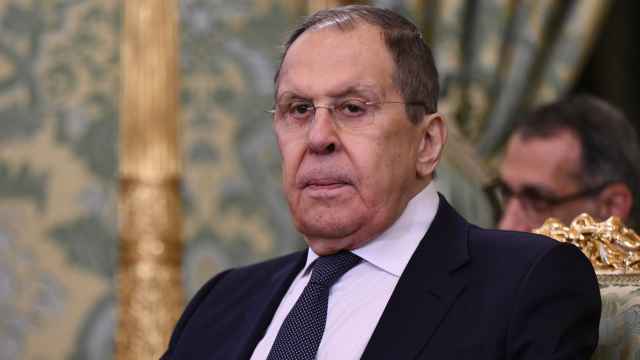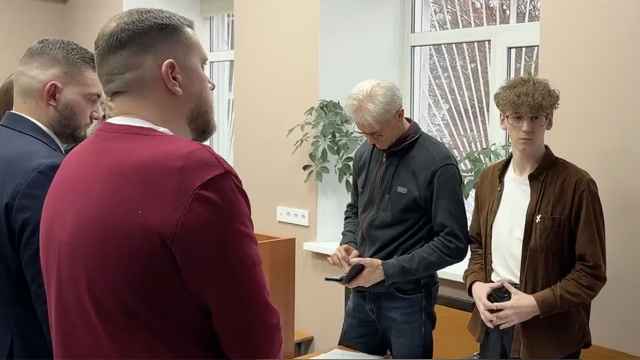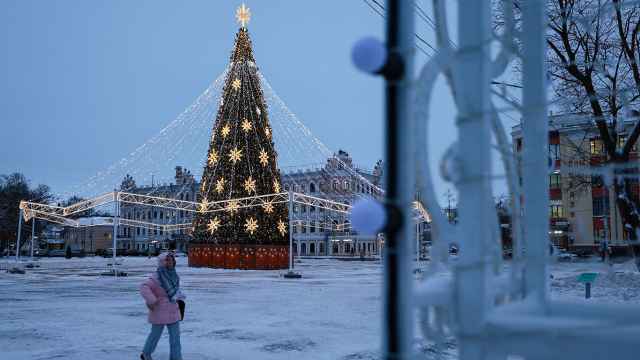While the Russian authorities are, for the time being, using kid gloves to deal with the opposition at home, they have not shown the same constraint in South Ossetia.
Opposition leader Alla Dzhioyeva suffered a minor stroke after her home was raided by the authorities and her election headquarters was destroyed. South Ossetia's short experiment with democracy came to an abrupt end when Dzhioyeva won 57 percent of the vote in the presidential election versus the 40 percent received by Anatoly Bibilov, the Kremlin protege of outgoing South Ossetian President Eduard Kokoity.
There are definitely peculiarities in South Ossetia's democracy. How you vote in the tiny republic is less important than the number of machine guns you own. Corruption among the ruling class and the poverty of most South Ossetians have reached such a high level that the people could stand it no longer. This is why they voted for the alternative candidate.
A victory by either candidate would not have resulted in any strategic changes, though. South Ossetia would continue as Russia's vassal.
So why would the Kremlin and Federal Security Service be so upset about the victory of one pro-Russian candidate over another?
There are two reasons. The first concerns purely economic interests. Those currently in power in South Ossetia have reportedly embezzled enormous sums from the aid the republic receives from Moscow. Thus, they have far greater resources to bribe their benefactors than the opposition, which does not have access to these funds.
The largest victim is Russia's wounded reputation. After all, how can the Kremlin claim that Russia has "gotten up off of its knees" if the tiny South Ossetian tail is wagging the huge Russian dog?
The second reason is even more unpleasant. The world is rapidly moving toward a military conflict in the Middle East. If civil war in Syria is followed by an Israeli strike against Iran, Prime Minister Vladimir Putin is likely to seize the opportunity to stage his long-awaited attack on Georgia. There are clear signs of contingency planning for this attack. The 58th Army is under new command, and almost all of its weaponry has been modernized. What's more, waging a war directly after the March 4 presidential election is the best way to stir up a patriotic frenzy and destroy Russia's "radical opposition" at the same time.
Perhaps that is why the Kremlin decided not to switch horses in midstream. The more South Ossetian leaders embezzle government funds and the more their people suffer in poverty as a result, the more easily they will be convinced that a war against "the Georgian fascists" is necessary.
If this scenario leads to the end of a democratic Georgia, as well as to the grassroots freedom movement in Russia, the blame must fall not only on the Kremlin, but also on the cowardly commission headed by Heidi Tagliavini and other European bodies. It was they who shamelessly failed to say clearly in their official investigation who attacked whom in the Russia-Georgia war of 2008.
This reminds me of those who argue that Poland attacked Nazi Germany in 1939, not the other way around.
Yulia Latynina hosts a political talk show on Ekho Moskvy radio.
A Message from The Moscow Times:
Dear readers,
We are facing unprecedented challenges. Russia's Prosecutor General's Office has designated The Moscow Times as an "undesirable" organization, criminalizing our work and putting our staff at risk of prosecution. This follows our earlier unjust labeling as a "foreign agent."
These actions are direct attempts to silence independent journalism in Russia. The authorities claim our work "discredits the decisions of the Russian leadership." We see things differently: we strive to provide accurate, unbiased reporting on Russia.
We, the journalists of The Moscow Times, refuse to be silenced. But to continue our work, we need your help.
Your support, no matter how small, makes a world of difference. If you can, please support us monthly starting from just $2. It's quick to set up, and every contribution makes a significant impact.
By supporting The Moscow Times, you're defending open, independent journalism in the face of repression. Thank you for standing with us.
Remind me later.





